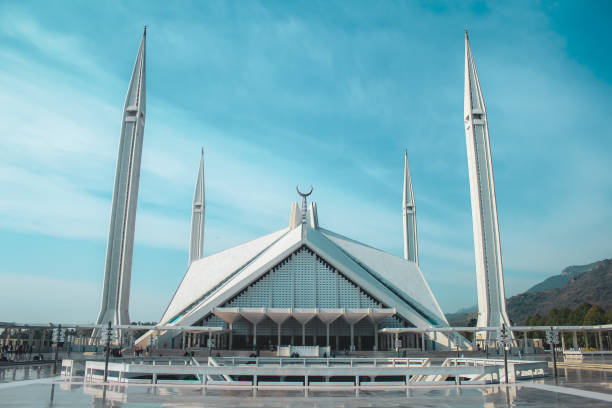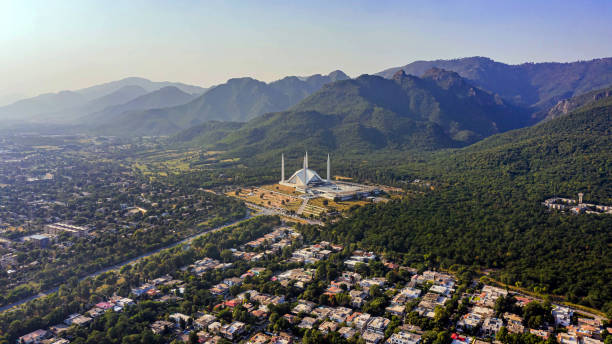Nestled at the foothills of the Margalla Hills in the Pothohar Plateau,
Islamabad, the capital city of Pakistan, stands as a beacon of modernity and progress in the South Asian region. Established in the 1960s to replace Karachi as the capital, Islamabad has evolved into a vibrant metropolis renowned for its lush greenery, well-planned infrastructure, and cultural diversity. In this article, we delve into the history, architecture, culture, and significance of Islamabad as a symbol of Pakistan's aspirations and identity.
**History and Development**
The idea of a purpose-built capital for Pakistan emerged soon after the country gained independence in 1947. The site for the new capital was carefully selected for its strategic location and natural beauty. Construction began in the early 1960s under the supervision of renowned Greek architect Constantinos Apostolou Doxiadis, with the vision of creating a modern, planned city that would reflect the aspirations of the newly formed nation.
The name "Islamabad" translates to "City of Islam" in Urdu, reflecting Pakistan's identity as an Islamic republic. The city was officially inaugurated as the capital in 1967, marking a significant milestone in the nation's history.
**Architectural Marvels**
One of the defining features of Islamabad is its contemporary architecture and well-planned layout. The city's skyline is dominated by modern high-rise buildings, government offices, and diplomatic enclaves. The iconic Shah Faisal Mosque, one of the largest mosques in the world, is a masterpiece of modern Islamic architecture, with its striking design and vast prayer halls accommodating thousands of worshippers.
Another architectural gem is the Pakistan Monument, located at the west end of the Shakarparian Hills. Shaped like a blooming flower, the monument symbolizes the unity of the Pakistani people and pays homage to the country's rich cultural heritage. Surrounding the monument is a sprawling garden dotted with lush greenery and water features, offering a tranquil escape from the hustle and bustle of city life.
**Cultural Diversity**
Islamabad is home to a diverse population comprising people from various ethnic, linguistic, and cultural backgrounds. The city's cosmopolitan atmosphere is reflected in its vibrant arts and culture scene, with numerous art galleries, theaters, and cultural festivals showcasing the talents of local and international artists.
The Lok Virsa Museum, situated near the Pakistan Monument, is a treasure trove of Pakistan's cultural heritage, featuring exhibits on traditional crafts, music, dance, and folklore. Visitors can immerse themselves in the rich tapestry of Pakistani culture and gain a deeper appreciation for the country's diverse traditions.
**Economic Hub and Diplomatic Center**
As the capital of Pakistan, Islamabad plays a crucial role in the country's economic and diplomatic affairs. The city is home to the headquarters of various government institutions, including the Presidency, Parliament, and Supreme Court, as well as numerous foreign embassies and diplomatic missions.
In recent years, Islamabad has emerged as a hub for business and investment, attracting multinational corporations, IT companies, and entrepreneurs seeking opportunities in the region. The city's strategic location, well-developed infrastructure, and business-friendly environment make it an ideal destination for investment and economic growth.
**Green Oasis**
One of the most striking features of Islamabad is its abundant greenery and natural beauty. The city is adorned with lush parks, wooded hillsides, and verdant gardens, providing residents and visitors alike with ample opportunities for outdoor recreation and relaxation.
The Margalla Hills National Park, located on the outskirts of Islamabad, offers breathtaking views of the city skyline and serves as a popular destination for hiking, picnicking, and wildlife spotting. The serene Rawal Lake, formed by the damming of the Korang River, is another favorite spot for boating, fishing, and birdwatching.
**Conclusion**
In conclusion, Islamabad stands as a testament to Pakistan's vision of progress, development, and unity. From its modern architecture and cultural diversity to its economic significance and natural beauty, the capital city encapsulates the spirit of the nation and serves as a symbol of hope and aspiration for its people. As Islamabad continues to evolve and grow, it remains an integral part of Pakistan's identity and a source of pride for generations to come.



You must be logged in to post a comment.